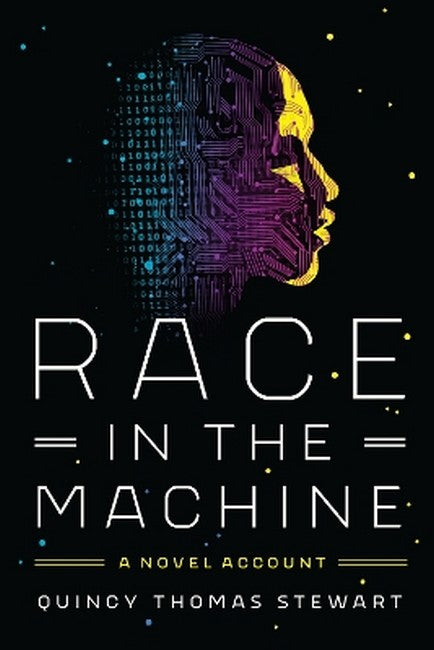Quincy Thomas Stewart is Associate Professor of Sociology at Northwestern University. He has published on quantitative methods, mathematical demography, and racial and ethnic inequities. Formerly, he was a Robert Wood Johnson Scholar in Health Policy Research at the University of Michigan and an Associate Professor of Sociology at Indiana University.
Request Academic Copy
Please copy the ISBN for submitting review copy form
Description
1. The Race Code / Evolution of Cognition (Interlude 1) 2. Building a Simple Machine / The Mythical Statistic (Interlude 2) 3. Big Bad Racists, Subtle Prejudice and Minority Victims / The Time Bender Problem (Interlude 3) 4. Structures Set the Stage / The Power of Bending (Interlude 4) 5. Race in the Mad4 Wild / The Song of the Sacred Method (Interlude 5) 6. The Theoretical Apogee / Exodus (Coda) Afterword: A Conversation with the Author
"Stewart's imaginative writing is best described as David Foster Wallace meets W.E.B Du Bois. Using a novel literary device, Stewart breathes fresh life into the computational sociology of race and racism. This book is a subtle, introspective work that captivates the reader through an Afrofuturist exploration of scientific methodology, social inequity and the human condition."-Damon Centola, University of Pennsylvania "Race in the Machine is truly a novel account. Deftly integrating fiction and social science scholarship, Quincy Stewart offers a highly innovative and fascinating exploration of race. This wholly original and engaging book bring to light the paradoxes and complexities in thinking about and studying race-and in so doing compels readers the rethink their assumptions regarding race." -Brian Powell, Indiana University "Race in the Machine is very well written and tells a story that challenges our narrative of what is race. The fictional nature of the narrative as told is an assault on the fabrications that social statistics are neutral, and that the quantitative accounting and surveillance capitalism are a rational outcome of mathematical logic. The author has asked us to be creative in our imagining the world that we create, and the potential of making it a better or worst world by our thinking about difference in the world. The world that we allow to be hampered by the reality of racial stratification. We must recognize the systemic nature of white supremacy as a problem for human survival. Race in the Machine revolutionizes the potential of Critical Race Quantitative scholars in the information sciences, technology sciences, communication science, and the social sciences."-Tukufu Zuberi, University of Pennsylvania "[T]he world that Quincy Thomas Stewart creates through Race in the Machine is a reminder for academics to step outside the methodologies and ideologies of the ivory tower, from time to time, if they are to really learn about and through the deeply violent world that we also live in. Scholars and students who have ever had a moment questioning the contributions of their scholarship during a time of worldly tumult and unraveling crises would find this book useful."-Youbin Kang, Sociology of Race and Ethnicity

